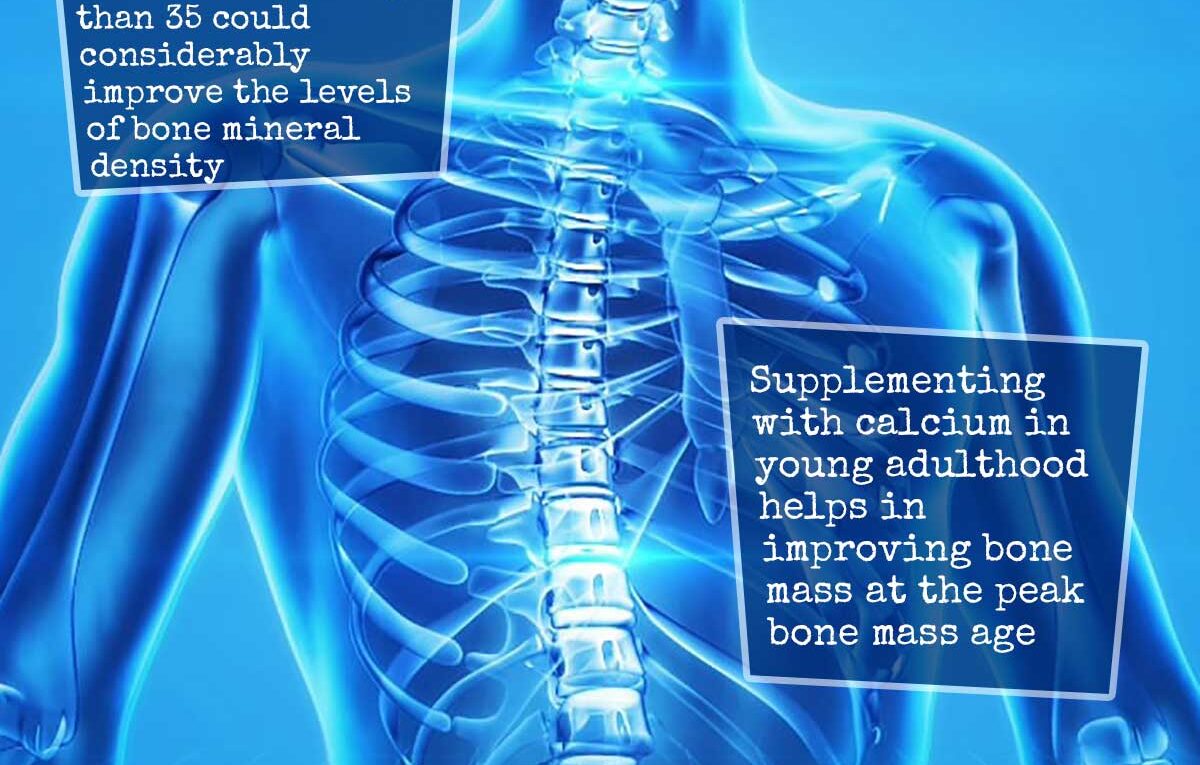Enhancing Bone Mass in Individuals Under 35 with Calcium Supplements
Supplementation with calcium during young adulthood has the ability to strengthen bone mass at its peak bone mass age, creating an opportunity to prevent osteoporosis later on in life.
Study results provide new evidence regarding the benefits of supplementing with calcium, and suggest that individuals begin considering bone health from an early age.
Fractures and osteoporosis are global public health concerns of particular concern to older women. While calcium supplements have long been prescribed to these populations in an effort to increase bone mass, several studies suggest it’s unlikely to result in clinically meaningful reductions of fracture rates.
However, treatment prior to young individuals reaching peak bone density could prove more effective for their bone health and help protect against osteoporosis later.
There has been much discussion regarding whether supplementing with calcium would aid the bone health of younger individuals, so the researchers conducted an in-depth review of existing studies for calcium supplement efficacy among people under 35.
Studies that included individuals aged 35 or younger and conducted randomized controlled studies comparing calcium or combination therapies such as calcium and vitamin D with no treatment or placebo in terms of bone mineral content or bone mineral density were specifically reviewed.
43 studies involving over 7,300 individuals were included, of which 23 examined calcium supplementation while 20 examined diet-derived calcium intake. Data was then combined from these studies to analyze changes in bone mineral density across four domains: Femoral neck, Lumbar spine, Total body and Total hip.
Their key discovery was that calcium supplementation could significantly increase bone mineral density levels of both the femoral neck and total body, with slight increases in bone mineral content of the lumbar spine, total body, and femoral neck.
Individuals in the peri-peak bone mass age between 20 and 35 were most significantly improved compared to individuals younger than 20 years who are at pre-peak bone mass age.
Supplementing with calcium or eating food rich in calcium had positive impacts on bone mineral density in both the total body and femoral neck; however, measurements of bone mineral content of the lumbar spine and femoral neck only improved after supplementing with calcium.
Vitamin D’s significance was mixed. While calcium and vitamin D combination was found to have more positive outcomes for bone mineral content and density of the femoral neck than for total body or lumbar spine areas or bone mineral density of all sites combined, and vice versa.
Researchers concluded that supplementing with calcium could significantly enhance both bone mineral content and density in the neck area, with supplementing during peri-peak bone mass age being more effective than treating earlier or later in life.
Even though more research needs to be conducted to verify these results, this review offers valuable insight into supplementing with calcium and the best times and ways to do it for maximum effect.
As far as bone health and its full lifecycle is concerned, supplementing with calcium should begin around 20 to 35 years old for optimal bone mass plateau age.

